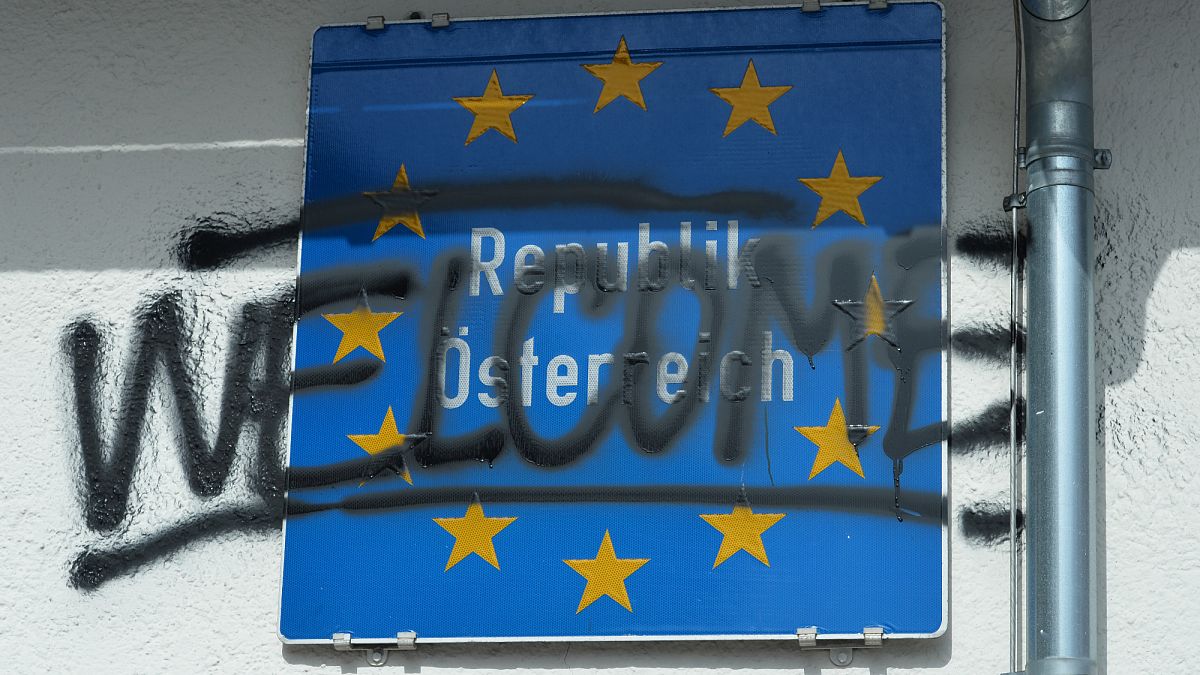Published on
Europe is past the worst of its peak migration flows but cannot afford to calm its efforts to deal with the issue, the head of the International Centre for Migration Policy Development (ICMPD) has told Euronews in an interview.
The ICMPD is an international organisation that supports governments and institutions in developing and implementing long-term strategies to manage and govern migration.
“We’re not in an exceptional situation anymore,” said Michael Spindelegger, reflecting on the peak migration flows of 2015–2016 in the Vienna office of the agency, adding: “But with nearly one million asylum applications again last year, we can’t afford to calm down.”
Despite a big drop in irregular migration to the EU this year, migration remains a thorny political issue in many countries.
Michael Spindelegger, a former MEP from Austria, has been in charge of the ICMPD for almost a decade, told Euronews the EU is still in need of a “balanced and creative” approach to migration policy.
Italy and Denmark letter to European Court of Human Rights
Spindelegger expressed support for emerging migration models, such as Italy’s controversial plan to process asylum seekers in Albania—an initiative he described as “innovative” and legally distinct from the UK’s Rwanda scheme.
“The key difference is Italy remains responsible. It’s their authorities running the process,” he said. “If this works, it could be a model for other European countries.”
Asked about proposals from countries like Denmark that have seen the country come up against the European Convention on Human Rights, Spindelegger was open.
“Everyone is invited to explore intelligent, modern ways of handling migration,” he said.
To curb irregular migration, Denmark has deployed a mixture of policies from paying migrants to return to their home countries to the so-called “ghetto law” that aims to limit the concentration of ethnic minorities in certain neighbourhoods.
Denmark and Italy published an open letter -backed by a handful of other EU nations – criticising the European Court of Human Rights for going “too far” in interpreting the law on migration matters.
The EU Migration Pact: imperfect but important
The recently ratified EU Migration and Asylum Pact—years in the making—has sparked division among member states, with Hungary, Poland, and the Netherlands voicing strong opposition.
Still, Spindelegger called the pact a “big step forward”, dismissing claims that it’s falling apart.
“There is always opposition in Europe. The fact that we reached a breakthrough after so many years of deadlock is a success in itself,” he noted.
He emphasised that national initiatives like Italy’s do not conflict with the pact, which is primarily about streamlining asylum procedures and strengthening border controls.
Safe countries and Syrian returns
On the contentious issue of returning migrants to countries deemed “safe”, Spindelegger highlighted the complexity of the debate—particularly in relation to Syria.
“It depends very much on developments on the ground,” he said. “In parts of Syria, especially along the Mediterranean coast, conditions might be improving, but we need real guarantees for minority protection.”
He urged EU states to engage directly with Syrian authorities before any broader policy shifts, warning against premature decisions.
EU ministers will meet in Luxembourg next week for talks on migration and asylum.

